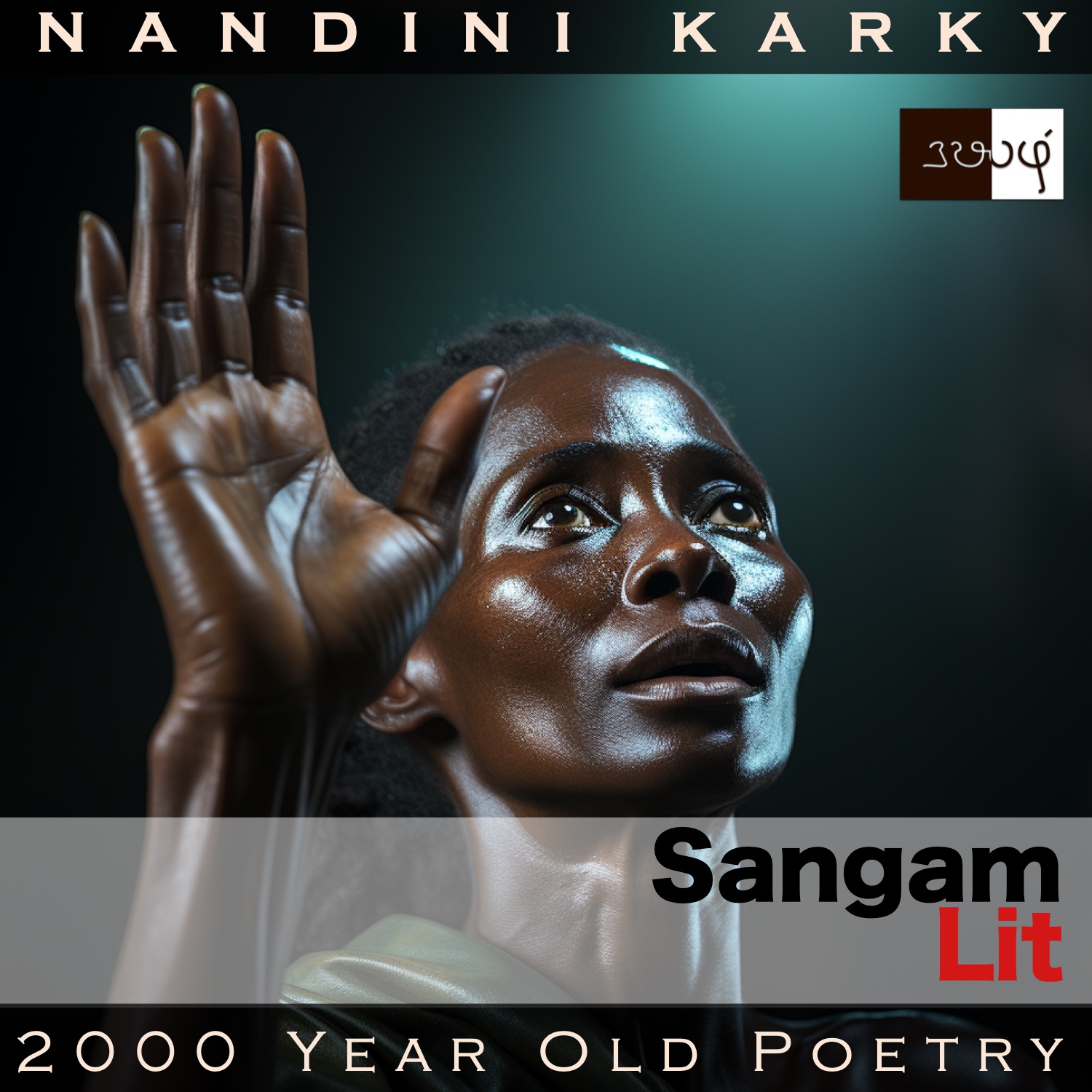Podcast: Play in new window | Download
Subscribe: Apple Podcasts | Spotify | Amazon Music | Android | iHeartRadio | TuneIn | RSS | More
In this episode, we reflect on the pain of a mother as portrayed in Sangam Literary work, Puranaanooru 254, penned by the poet Kayamanaar. The verse is situated in the category of ‘Pothuviyal Thinai’ and talks about a grievous event.

இளையரும் முதியரும் வேறு புலம் படர,
எடுப்ப எழாஅய், மார்பம் மண் புல்ல,
இடைச் சுரத்து இறுத்த மள்ள! விளர்த்த
வளை இல் வறுங் கை ஓச்சி, கிளையுள்,
‘இன்னன் ஆயினன், இளையோன்’ என்று,
நின் உரை செல்லும் ஆயின், ‘மற்று
முன் ஊர்ப் பழுனிய கோளி ஆலத்து,
புள் ஆர் யாணர்த்தற்றே, என் மகன்
வளனும் செம்மலும் எமக்கு’ என, நாளும்
ஆனாது புகழும் அன்னை
யாங்கு ஆகுவள்கொல்? அளியள் தானே!
This verse seems to continue the thought in the previous one, although it’s penned by a different poet. The poet’s words can be translated as follows:
“The young and the old have gone away to various places; But you do not stir when I try to wake you up, as you lie there, your chest spreading on the ground, O soldier, who has fallen in the middle of the drylands! Raising my pale, bangle-less empty hands, when I declare about your state to our kith and kin saying, ’This is what has happened to our young man’, what will become of your mother, who praises you ceaselessly saying, ‘Akin to the abundance of the flowerless banyan, growing in front of the village, whose copious fruits make birds resound all around it, my son will bring wealth and esteem to us’? She is to be pitied indeed!”
Let’s delve into the words here. The poet speaks in the voice of a young woman who leaves to the place of a recent battle as her husband had not returned home, even after many of the young and old who fought there, had reached their homes in different places. And here she finds her husband fallen on the ground, not rising even when she tries to shake and wake him up. So she cries out aloud thinking about what might happen when she leaves to their town and raises her barren hands without bangles, which is by itself, a symbol for the death of her husband, and tells them how it happened. Particularly, the woman’s thoughts turn to that of the man’s mother, who lives her life praising her son and declaring that like the abundance of the banyan tree’s fruits that attracts birds many, her son would bring to her, prosperity and respect’. The young woman concludes by declaring that the poor mother is to be pitied for the dashing away of her hope by the untimely death of her son.
The woman should surely be of a noble heart to think of another sorrow’s even as she faces her own. A mother’s terrible pain at the loss of her child can be sensed from this verse. Even as the poem reveals a deep understanding of emotions, it also taught me something new about a banyan tree. What triggered this search was the word ‘கோளி’ mentioned as an adjective to the banyan tree! When I tried to investigate the reason for the same, I learnt that this word was an epithet given to trees, which do not have flowers but they fruit nevertheless. It is then I learnt that the deep red fruits of the banyan tree are not just fruits but conceal multiple flowers of the tree within them, just like a fig fruit. Once again, stunned by the powers of observation of these Sangam people in equal measure to the nuances in nature and in human nature!




Share your thoughts...